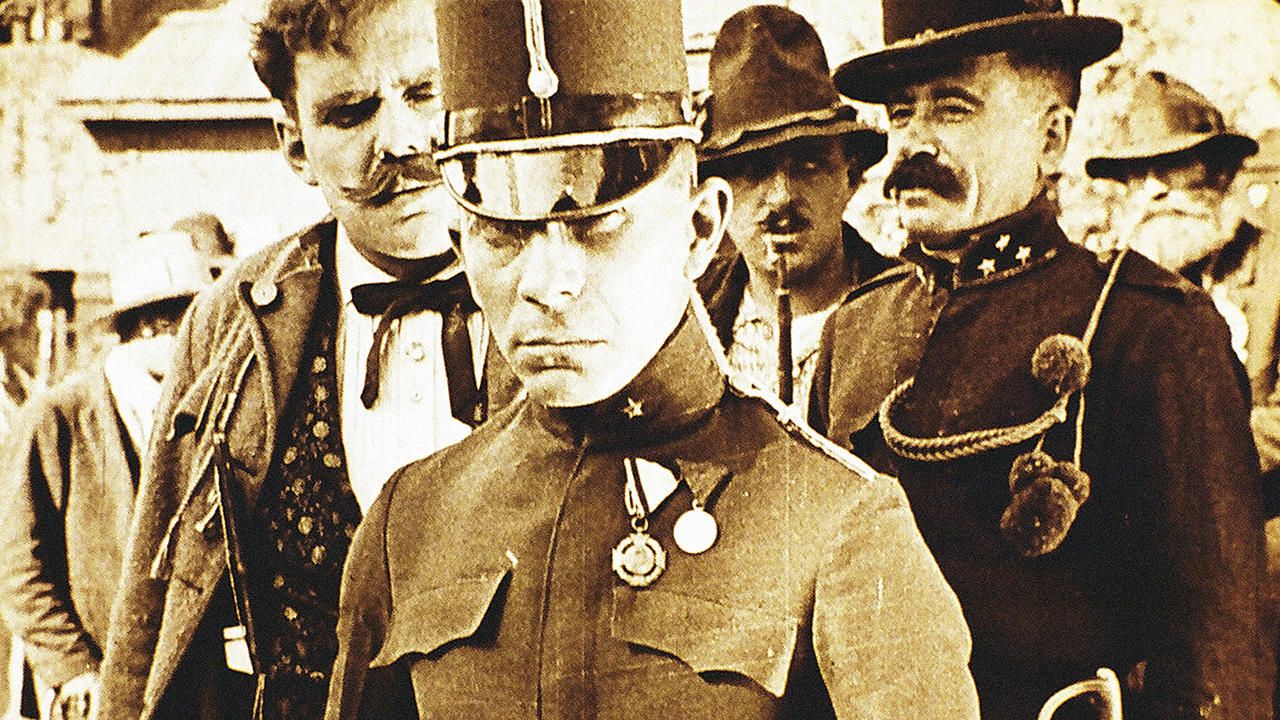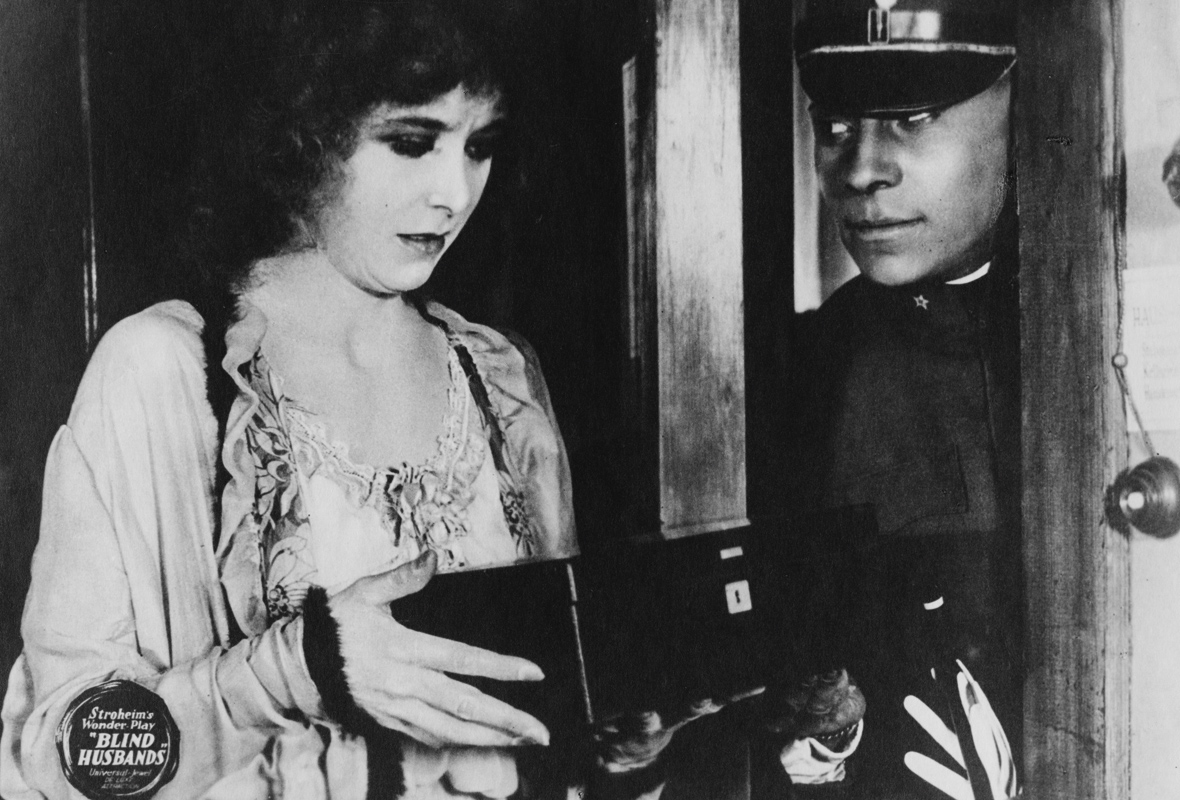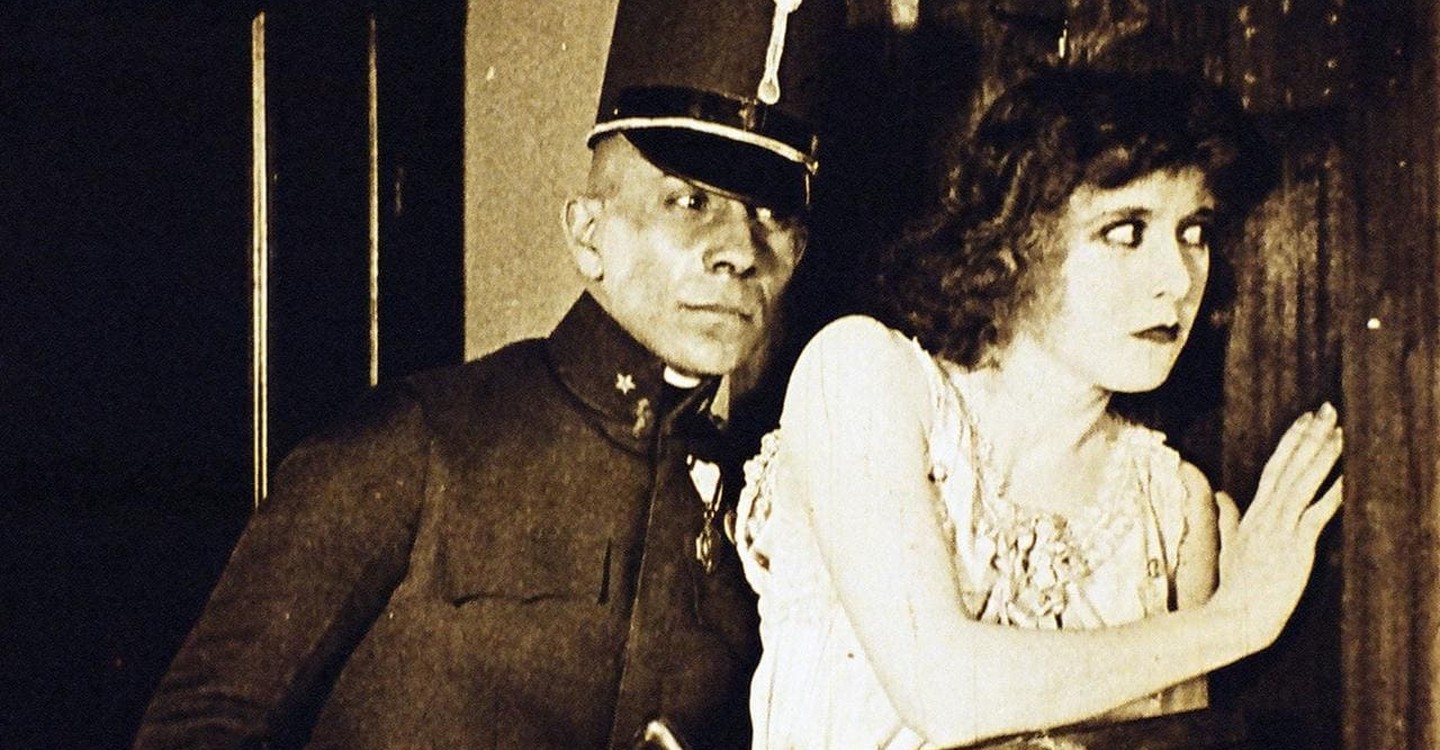Blind Husbands
Blind Husbands
USA 1919, 100 min. | HD-s/w-restaurierte Fassung
In his debut film, Erich v. Stroheim immediately delivers everything that later made him legendary as 'man you love to hate': a thrilling story about an impostor and supposed officer (played by the director himself) who puts the fidelity of a bored wife to the test and makes other women unhappy in the process. A brilliantly staged drama in the mountains and farce on bourgeois marriage.
The US-American physician Dr. Armstrong spends his holidays in the Dolomites with his wife. Erich von Steuben, an Austrian officer and womaniser, is also staying at the same hotel. On the way there, von Steuben already realises that Armstrong is neglecting his wife. As soon as he arrives in Cortina, von Steuben begins to ensnare her. At the same time, he also makes advances on maids at the hotel.
Mrs. Armstrong almost succumbs to his advances, but Sepp, a mountain guide who is a friend of von Steuben's, repeatedly gets in the way of von Steuben's intentions. Finally, Mrs Armstrong tells von Steuben in a letter that she wants to remain faithful to her husband.
When the doctor and the officer climb a mountain together, things escalate between the two men on the summit. Armstrong gets hold of his wife's letter. He misunderstands the contents and believes there is an affair between his wife and von Steuben. He angrily cuts the rope between him and the officer. He leaves him alone and descends into the valley. Halfway down, he finds his wife's letter to von Steuben, which he had thrown down earlier, and realises his mistake. Armstrong has an accident on the rock. When he is rescued by local climbers, he asks them to fetch von Steuben from the summit. Meanwhile, von Steuben, who had previously bragged about his mountaineering exploits, panics and falls to the depths while a party ascends to rescue him.
Blind Husbands was already a great cinema success in its time and established Erich v. Stroheim's rank as one of the most important directors of American silent cinema. Under the title 'The Pinnacle' he had offered the script to the Universal boss Carl Laemmle. The motifs of his later films already appear here: the decadence of the imperial and royal monarchy, criticism of the bourgeoisie. Monarchy, criticism of the bourgeois family and a depiction of erotic longings and frustrations that was unusually open for the time. Stroheim staged unsentimentally and provoked from the beginning with his unique mixture of realism and ironic exaggeration, which he himself stood for in the role of the deceitful officer von Steuben.
Commissioned by Wiener Konzerthaus, Elbphilharmonie Hamburg and ZDF in collaboration with Arte, Basel(Switzerland)-based composer Andreas Eduardo Frank is writing a new film score for ensemble.
The premiere at the Wiener Konzerthaus is scheduled for 04 October 2021.
Blind Husbands
Filmmusik für Ensemble von Andreas Eduardo Frank (2021)
Besetzung:
1 Flöte/Picc./Bassflöte, 1 Oboe/engl. Horn, 1 Klarinette/Bassklarinette, 1 Trompete, 1 Klavier (inside playing)/Bandoneon/Toypiano, 1 Gitarre/Banjo/Resonatorgitarre, 1 Schlagzeug, 1 Violine, 1 Viola, 1 Cello, 1 Kontrabass
Die längste erhaltene Fassung des Films stammt aus Österreich und war 1921 unter dem Titel Die Rache der Berge in die Kinos gekommen. Diese Version ist die Grundlage der aktuellen 4K-Restaurierung des Österreichischen Filmmuseums, wo diese Fassung mit den amerikanischen Originaltiteln ergänzt wird.
Der 1987 geborene Komponist, Medienkünstler und Performer Andreas E. Frank (*1987) studierte an der HfM Würzburg Gitarre und Komposition sowie am elektronischen Studio der HfM Basel. In seinen Werken arbeitet er an der Schnittstelle zwischen real und virtuell, Musik und Performance, Video und Theater. Die Zusammenarbeit mit Künstlern anderer Disziplinen führte zu zahlreichen internationalen Aufführungen in Europa, Asien und USA. Andreas Frank wurde mehrfach für sein Schaffen ausgezeichnet, war Stipendiat der Akademie Musiktheater Heute (15-17) und Preisträger des Protonwerks-Nr. 6, wurde für das MATA Festival 2018 in New York nominiert und erhielt 2020 den Kompositionspreis der Landeshauptstadt Stuttgart.
Erich von Stroheim (born Erich Oswald Stroheim; * 22.09.1885 in Vienna; † 12.05.1957 near Paris) In the 1920s he was one of the leading directors in Hollywood with films such as Greed, The Merry Widow or Wedding March. His notorious disregard for shooting schedules, budgetary constraints and censorship regulations led to almost all of his films being cut or his directorship being revoked. Today, none of his films exist in their original versions. After 1933, he was no longer employed as a director and returned to working as an actor. He had great success as an actor in films like The Grand Illusion or Sunset Boulevard, but also appeared in numerous B-movies.
Credits
- Direction, Screenplay:
Erich von Stroheim - Camera:
Ben F. Reynolds - Actors:
Sam De Grasse (Dr. Robert Armstrong), Francelia Billington (Margaret Armstrong, his wife), Erich von Stroheim (Lt. Erich von Steuben), T. H. Gibson-Gowland (Sepp, Mountain guide) u.v.a. - Film restoration (2021):
Österreichisches Filmmuseum - Score music (2021):
Andreas Eduardo Frank (Commissioned by ZDF in collaboration with Arte) - Editorial:
Nina Goslar, ZDF - Production:
Thomas Schmölz, 2eleven music film








